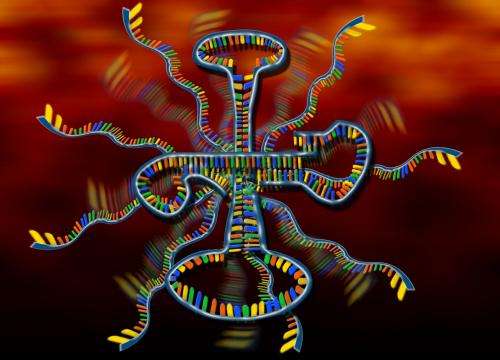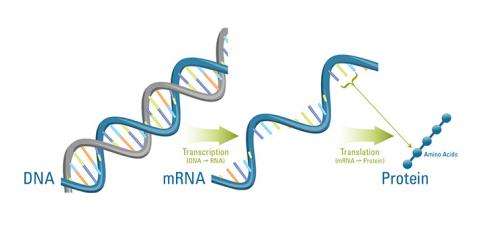Jumping hurdles in the RNA world

Astrobiologists have shown that the formation of RNA from prebiotic reactions may not be as problematic as scientists once thought.
One hypotheses for the origin of life on Earth includes a period known as the 'RNA World.' In this scenario, ribonucleic acid (RNA) formed from non-biological reactions before being incorporated into life's first cells.
The study presents a proof-of-concept system that could overcome previously cited challenges to the RNA World hypothesis, and was published in the Journal of the American Chemical Society (JACS).
Information and Motivation
Today, RNA in cells is best known for its role in transferring information in cells, ultimately effecting how genes from DNA are expressed. However, studies have shown that RNA can also play an important role in catalyzing reactions in cells that are necessary for life – in a way similar to proteins that are known as enzymes.
The multiple talents of the RNA molecule make it a prime candidate for use in Earth's first cells. RNA may have provided early life with a means for storing genetic information, and it also could have pushed important reactions along before enzymes were readily available.

Life relies on a complex dance of chemical reactions inside cells. These reactions require a variety of different molecules. A molecule that can perform multiple functions (like RNA) could have been extremely useful in the early stages of life's development, and at a time when the huge variety of biological molecules we see today had yet to evolve.
More information: "Spontaneous Prebiotic Formation of a β-Ribofuranoside That Self-Assembles with a Complementary Heterocycle." J. Am. Chem. Soc., 2014, 136 (15), pp 5640–5646 DOI: 10.1021/ja410124v
Journal information: Journal of the American Chemical Society
Source: Astrobio.net
This story is republished courtesy of NASA's Astrobiology Magazine. Explore the Earth and beyond at www.astrobio.net .
















